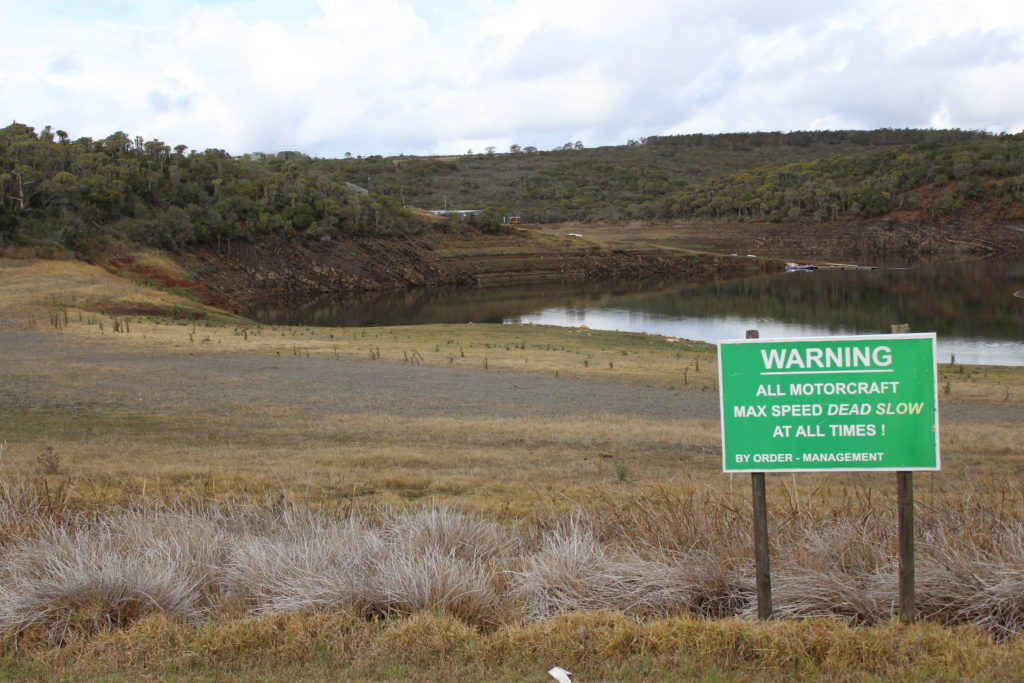Cooperative Governance and Traditional Affairs Minister Des Van Rooyen says efforts are under way to classify the drought as a national disaster.
This would assign new responsibilities to the Minister of Water and Sanitation to issue regulations and directives in dealing with the drought.
The Minister said this when he led a briefing of the Inter-Ministerial Task Team on Drought at the Imbizo Centre in Cape Town.
“Currently, efforts are underway to classify the drought as a national disaster. This process will be finalized on or before 14 February 2018.
“This will legally assign the responsibility to the national executive to coordinate the disaster, while a declaration is being considered to be finalized within a period of a month.
“The declaration will empower the Minister or his Delegate to issue Regulations and/or Directives in dealing with the drought disaster,” he said.
The Minister said this as Northern Cape, Eastern Cape and the Western Cape – particularly Cape Town – all go through the worst drought to hit the areas in years.
While national dam levels stood at 59.6% on Wednesday, Western Cape dam levels dipped to 23.7%.
In Cape Town, City officials have announced that Day Zero – when taps will be closed and residents will collect water from a central point – has been moved back from April to May after the farming community released water from a private dam to the municipal system.
On Thursday, the Minister said government was convinced that declaring drought as a national disaster would enhance current measures that are in place to deal with the disaster.
“It will also ensure that provinces, which are not currently declared, can be covered through measures to prevent and mitigate against the drought situation,” he said.
Some of the measures include:
- Issuing of early warning messages on a regular basis;
- Drilling and equipping of boreholes across all provinces;
- The application of water restrictions to regulate use of water;
- The provision of animal feed and fodder;
- Water tankering in areas of severe need;
- The promotion of the use of drought resistant cultivars;
- Reduction of water usage by industries and other users such as crop farmers;
- Change of timing of cultivation and irrigation, etc.
- Desalination;
- Water conservation and demand management; and
- Re-use optimisation.
The Minister said that in addition to this, an amount of R74.8 million was given to the Western Cape Province in August 2017 to deal with the situation. The only challenge is the slow pace of using the allocated funding that are geared to alleviate the impact of drought on particular sectors.
“At this stage, COGTA, through the National Disaster Management Centre, is currently in the process of considering requests from the Northern Cape and Eastern Cape provinces for funding of response and recovery measures.
Government to look at reviewing license conditions of privately-owned dams
Water and Sanitation Minister Nomvula Mokonyane said, meanwhile, that the department was looking at reviewing the licenses of privately-owned dams to ensure that water is prioritized for human consumption.
Out of a total of 5125 dams in South Africa, only 323 are owned by the department.
Among others, the Minister said the privately-owned dams were built for specific purposes, including for agriculture.
“I am sure we would all appreciate that given our own historical development, there was the construction of dams for purpose.
“We must move away from having dams that are meant for a purpose because it just doesn’t make sense… hence the need to review the license conditions of the dams …. so that you are able to fulfill a constitutional obligation with regard to the water supply.
“In terms of the constitutional obligation, priority [of water]is for human consumption,” she said.
The Minister said what was of importance was to appreciate the fact that the national government is the custodian of water, which is a national asset.
Water infrastructure contracts to be prioritised
The Minister said, meanwhile, that municipalities would receive assistance in fast-tracking water infrastructure goods and services to deal with the current drought.
In 2015, the Municipal Infrastructure Support Agent (MISA) entered into a Memorandum of Agreement with the National Treasury’s Office of the Chief Procurement Officer on Framework Contract.
The Minister said the objective of the agreement is for MISA to rollout of infrastructure procurement and delivery standards and framework contracts for Infrastructure Goods and Services in Local Government.
“This will contribute towards addressing challenges within the Supply Chain Management in municipalities, accelerate services delivery and alleviate disputes arising from tender processes derailing the acquisition of infrastructure assets critical for effective delivery of services. Municipalities will also save time by avoiding the restart of procurement process each time they need to purchase infrastructure goods and services.” – SAnews.gov.za


